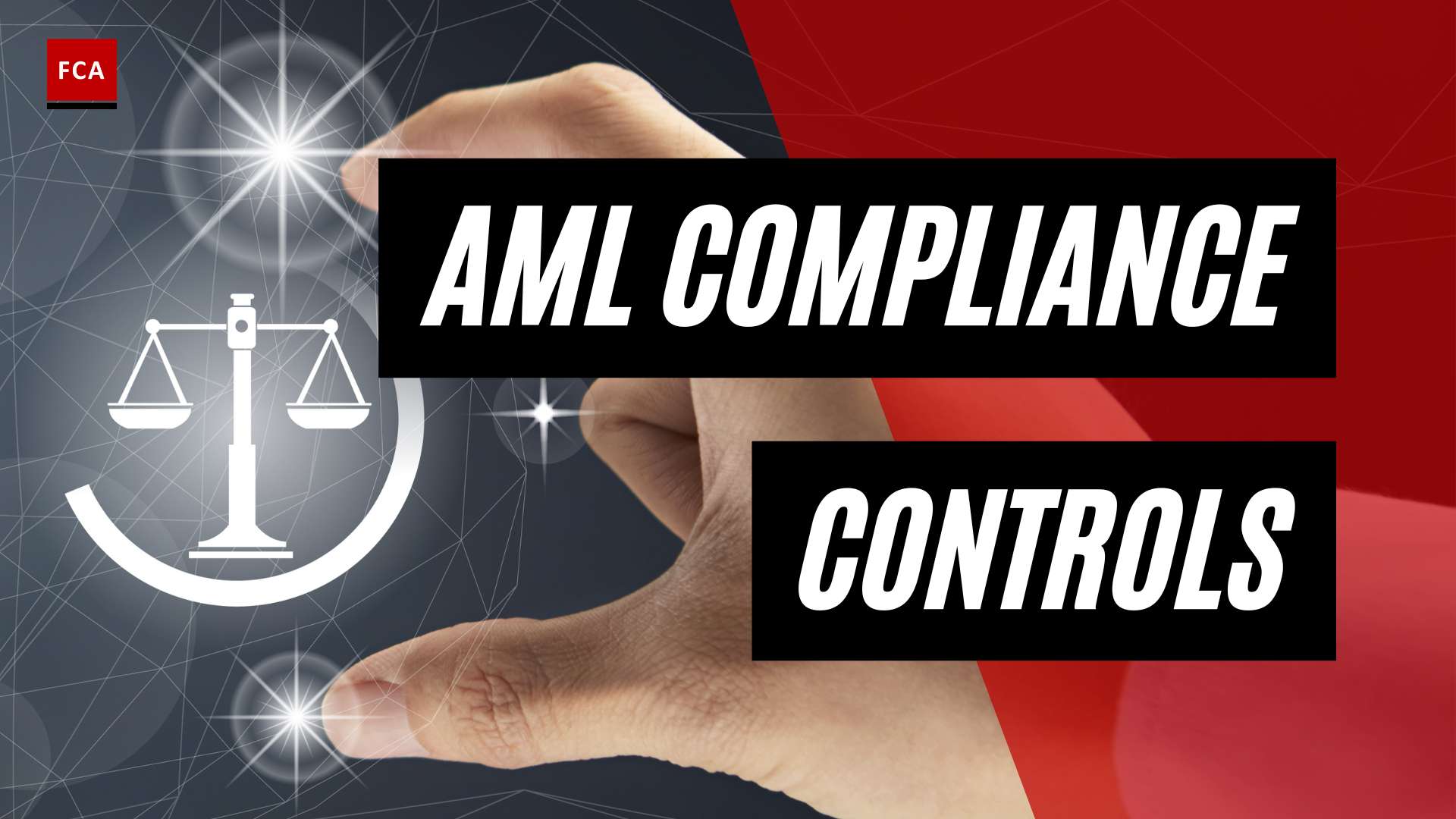The Importance of AML in the Cryptocurrency World
As the world of cryptocurrency continues to evolve, so does the need for robust Anti-Money Laundering (AML) measures. Understanding the significance of AML in the cryptocurrency realm is crucial for professionals working in compliance, risk management, anti-money laundering, and anti-financial crime.
Understanding Anti-Money Laundering (AML)
Anti-Money Laundering (AML) refers to a set of regulations and procedures designed to prevent the illegal acquisition and use of funds obtained through illicit activities. AML measures aim to detect and deter money laundering, terrorism financing, and other financial crimes. By implementing effective AML practices, financial institutions and cryptocurrency businesses can contribute to a safer and more secure financial ecosystem.
The Rise of Cryptocurrency and AML Concerns
The emergence of cryptocurrencies has brought about a new set of challenges and concerns regarding money laundering and illicit activities. Cryptocurrencies offer a certain level of anonymity and decentralization, which can be exploited by criminals to obscure the origin and destination of funds. This anonymity poses challenges for traditional AML methods and necessitates the development of specialized AML policies and procedures for the cryptocurrency industry.
Why Cryptocurrency AML Policies are Crucial
Cryptocurrency AML policies are of utmost importance to ensure the integrity of the financial system and protect against illicit activities. Here are some key reasons why these policies are crucial:
-
Mitigating Money Laundering Risks: Cryptocurrencies can be used to launder money and fund illicit activities due to their perceived anonymity. AML policies help identify and monitor suspicious transactions, reducing the risk of money laundering within the cryptocurrency ecosystem.
-
Compliance with Regulatory Standards: Compliance with AML regulations is mandatory for financial institutions and cryptocurrency businesses. Failure to adhere to these regulations can result in severe penalties, legal consequences, and reputational damage. Implementing robust AML policies ensures compliance with regulatory standards and helps maintain the integrity of cryptocurrency operations.
-
Protecting Users and Investors: AML policies play a crucial role in safeguarding the interests of cryptocurrency users and investors. By preventing money laundering and illicit activities, these policies help maintain trust and confidence in the cryptocurrency industry, attracting more participants and fostering its growth.
-
Enhancing Global Collaboration: Cryptocurrencies operate on a global scale, making international cooperation essential in combating money laundering. Cryptocurrency AML policies promote collaboration among regulatory bodies, financial institutions, and cryptocurrency businesses, enabling the sharing of information and best practices to effectively combat financial crime.
To effectively implement cryptocurrency AML policies, it is important to stay updated with the latest regulations, guidelines, and industry best practices. Investing in cutting-edge technology, such as advanced transaction monitoring systems and AML screening tools, can also enhance AML efforts in the cryptocurrency space. By prioritizing AML measures, the cryptocurrency industry can continue to evolve while mitigating the risks associated with financial crime.
Cryptocurrency AML Policies Explained
To combat the risks of money laundering and illicit activities in the cryptocurrency world, robust anti-money laundering (AML) policies are essential. These policies help to ensure compliance, enhance transparency, and maintain the integrity of the cryptocurrency ecosystem. In this section, we will explore three key components of cryptocurrency AML policies: Know Your Customer (KYC) requirements, transaction monitoring and reporting, and customer due diligence (CDD) measures.
Know Your Customer (KYC) Requirements
KYC requirements are a fundamental aspect of cryptocurrency AML policies. These requirements aim to verify the identities of customers and assess the potential risks associated with their transactions. By implementing KYC procedures, cryptocurrency businesses can establish a strong foundation for preventing money laundering and other illicit activities.
KYC procedures typically involve collecting and verifying key information from customers, such as their full name, date of birth, address, and source of funds. This information helps to establish the identity and legitimacy of the individuals involved in cryptocurrency transactions. KYC requirements also often include identity document verification, such as passports or driver’s licenses, to ensure accuracy and authenticity.
By implementing KYC procedures, cryptocurrency businesses can create a more secure and compliant environment, reducing the risk of facilitating illegal activities. To learn more about KYC requirements and their importance, you can refer to our article on cryptocurrency compliance.
Transaction Monitoring and Reporting
Transaction monitoring and reporting play a crucial role in detecting and preventing suspicious activities within the cryptocurrency space. Cryptocurrency businesses are required to monitor transactions for any signs of money laundering, terrorism financing, or other illicit activities. This includes analyzing transaction patterns, identifying unusual behavior, and reporting any suspicious transactions to the relevant authorities.
To effectively monitor transactions, cryptocurrency businesses often employ sophisticated transaction monitoring systems that can analyze large volumes of data in real-time. These systems use algorithms and machine learning techniques to detect patterns, anomalies, and potential risks. By continuously monitoring transactions, businesses can identify suspicious activities promptly and take appropriate action.
Reporting suspicious transactions is a vital component of AML policies in the cryptocurrency world. Cryptocurrency businesses are obligated to report any suspicious transactions to the appropriate regulatory authorities, enabling them to investigate and take necessary actions. By reporting suspicious activities, the cryptocurrency industry can contribute to the broader efforts of combating money laundering and illicit financing. For more information on transaction monitoring and reporting, you can refer to our article on cryptocurrency transaction monitoring.
Customer Due Diligence (CDD) Measures
Customer due diligence measures are designed to assess and mitigate the risks associated with customers’ involvement in cryptocurrency transactions. These measures involve gathering comprehensive information about customers and their intended transactions to establish a risk profile. By conducting CDD, cryptocurrency businesses can ensure that they are not unknowingly facilitating illicit activities.
CDD measures typically include assessing factors such as the nature of the customer’s business, the source of funds, and the purpose of the transactions. This information helps businesses identify any potential red flags and determine the appropriate level of due diligence required. Depending on the risk level, enhanced due diligence measures may be necessary for higher-risk customers or transactions.
By implementing robust CDD measures, cryptocurrency businesses can better understand their customers’ activities and identify any potential risks. This helps to create a safer and more compliant environment within the cryptocurrency industry. To learn more about CDD measures and best practices, you can refer to our article on crypto AML best practices.
Cryptocurrency AML policies are vital for maintaining the integrity and security of the cryptocurrency ecosystem. By adhering to KYC requirements, implementing transaction monitoring and reporting systems, and conducting thorough customer due diligence, businesses can play a crucial role in combating money laundering and illicit activities in the cryptocurrency space.
Challenges and Emerging Trends in Cryptocurrency AML
As the world of cryptocurrency continues to evolve, so do the challenges and emerging trends in Anti-Money Laundering (AML) efforts. It’s crucial to stay updated on these developments to ensure effective compliance and mitigate the risks associated with money laundering activities. In this section, we will explore three key challenges and emerging trends in cryptocurrency AML: the balance between anonymity and transparency, compliance with regulatory standards, and adopting technology for enhanced AML efforts.
Anonymity vs. Transparency
Cryptocurrencies offer a level of anonymity due to the use of cryptographic technology and decentralized networks. While this characteristic has its benefits, it also poses challenges for AML efforts. The anonymous nature of transactions can make it difficult to trace the origin and destination of funds, potentially enabling money laundering activities.
To address this challenge, regulators and industry participants are working to strike a balance between anonymity and transparency. Some cryptocurrencies are implementing features that enhance transaction traceability and compliance. Additionally, regulatory bodies are establishing guidelines and requirements to ensure proper monitoring and reporting of cryptocurrency transactions. For more information on the topic, refer to our article on cryptocurrency anti-money laundering.
Compliance with Regulatory Standards
The rapidly evolving landscape of cryptocurrencies presents challenges in terms of complying with AML regulations. Different jurisdictions have varying regulatory frameworks, making it essential for cryptocurrency businesses to navigate and adhere to multiple sets of requirements.
To ensure compliance, cryptocurrency businesses must stay informed about the AML regulations specific to the jurisdictions they operate in. This includes understanding reporting obligations, customer due diligence requirements, and transaction monitoring protocols. By implementing robust compliance programs, businesses can mitigate the risk of non-compliance and potential legal consequences. Our article on cryptocurrency compliance provides more detailed insights into this topic.
Adopting Technology for Enhanced AML Efforts
Technological advancements have the potential to revolutionize AML efforts in the cryptocurrency space. The use of artificial intelligence, machine learning, and blockchain analytics can enable more efficient and effective detection of suspicious transactions and patterns. These technologies can help identify potential money laundering activities, enhance risk assessment, and streamline compliance processes.
Cryptocurrency businesses are increasingly adopting AML software solutions that leverage these technologies. These solutions provide advanced transaction monitoring, risk scoring, and screening capabilities. By incorporating technology-driven AML tools, businesses can enhance their ability to detect and prevent illicit activities. For more information on AML software solutions, refer to our article on cryptocurrency AML software.
By acknowledging and addressing the challenges associated with cryptocurrency AML, and embracing emerging trends and technologies, businesses can strengthen their compliance efforts and contribute to a more secure and transparent cryptocurrency ecosystem. It is essential to stay informed about the latest regulatory developments and industry best practices in order to effectively combat money laundering activities in the cryptocurrency realm.
Best Practices for Cryptocurrency AML Compliance
To effectively combat money laundering and illicit activities in the cryptocurrency world, it is essential for businesses to establish robust Anti-Money Laundering (AML) systems and procedures. By implementing best practices, organizations can strengthen their defenses and maintain compliance with regulatory standards. Here are some key best practices for cryptocurrency AML compliance:
Establishing Robust AML Systems and Procedures
To ensure effective AML compliance, organizations should establish comprehensive systems and procedures tailored to the unique characteristics of the cryptocurrency industry. This includes implementing transaction monitoring tools and cryptocurrency AML software that can detect suspicious activities and patterns in real-time. By leveraging advanced technology, businesses can enhance their ability to identify and report potential money laundering activities.
In addition, organizations should develop and enforce strict cryptocurrency AML guidelines that outline procedures for customer due diligence, transaction monitoring, and reporting. These guidelines should be regularly reviewed and updated to reflect the evolving regulatory landscape and emerging risks.
Training and Education for Staff
A well-trained and knowledgeable staff is crucial for effective AML compliance in the cryptocurrency industry. Organizations should invest in comprehensive cryptocurrency AML training programs to ensure that employees understand the importance of AML policies and procedures. Training should cover topics such as customer due diligence, transaction monitoring, recognizing red flags, and reporting suspicious activities.
Regular training sessions and updates should be conducted to keep employees informed about emerging trends, new regulatory requirements, and evolving money laundering techniques. By fostering a culture of compliance and providing ongoing education, organizations can empower their staff to play an active role in preventing money laundering activities.
Collaboration and Information Sharing in the Industry
Collaboration and information sharing among industry participants are critical for effective cryptocurrency AML compliance. Organizations should actively participate in industry forums, working groups, and partnerships to exchange best practices, share insights, and stay up to date with the latest trends and regulatory changes.
By collaborating with other businesses, regulators, and law enforcement agencies, organizations can collectively address common AML challenges and enhance the overall effectiveness of AML efforts. Sharing information about emerging risks, suspicious activities, and new methodologies can help the industry stay one step ahead of money launderers and facilitate a safer cryptocurrency ecosystem.
Implementing these best practices can significantly strengthen cryptocurrency AML compliance efforts. By establishing robust systems and procedures, investing in staff training and education, and fostering collaboration within the industry, organizations can effectively combat money laundering and protect the integrity of the cryptocurrency market.








